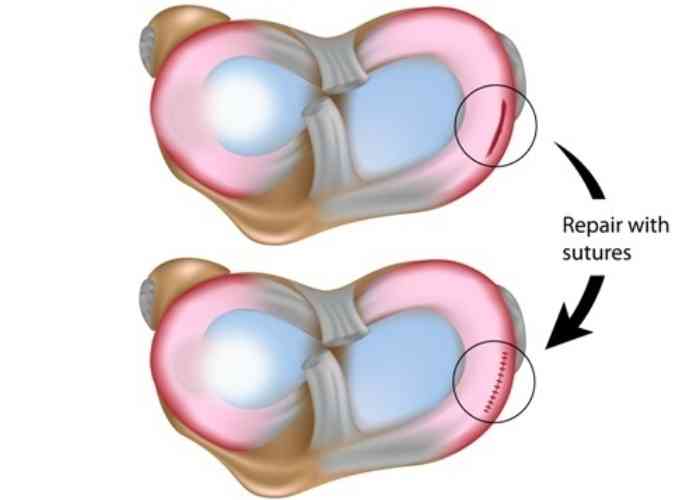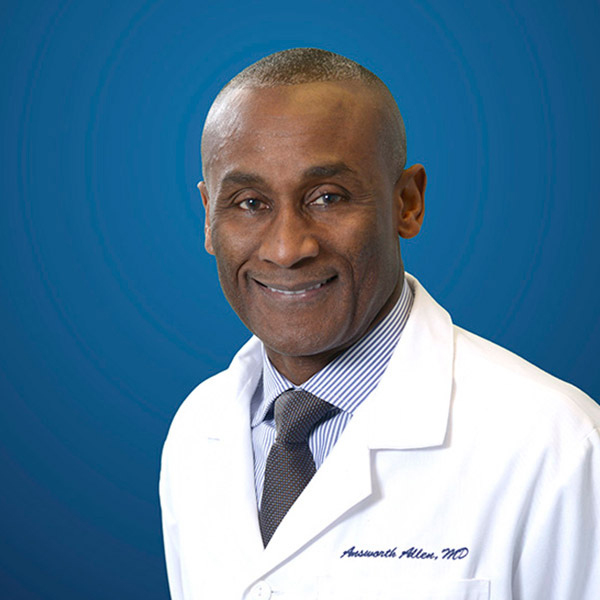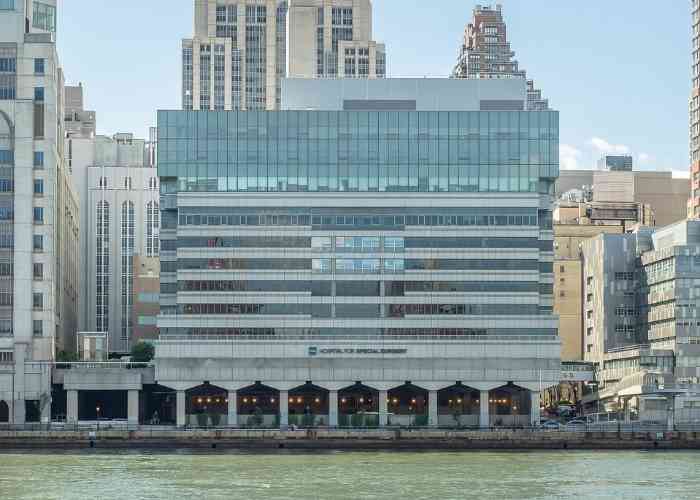What is a meniscus tear?
The meniscus is a “C” shaped shock-absorbing cartilage located within the knee joint between the femur (thigh bone) and tibia (shin bone). This piece of cartilage protects the knee ligaments from outside forces and provides lubrication for the knee joint to move easily. The meniscus can be found along the inner portion of the knee, known as the medial meniscus, and the outer portion of the knee, known as the lateral meniscus. A tear of the meniscus can be the result of a forceful knee rotation and is often seen in athletes; however, normal activities of daily living can also cause meniscus tears.

What is the treatment for a meniscus tear?
The meniscus can be separated into two segments: the “red zone” and the “white zone”. The “red zone” is the outer one-third of the meniscus with a healthy blood supply. Tears within this region can often heal on their own. The “white zone” is the inner two-thirds of the meniscus that completely lacks blood supply, and tears within this region of the meniscus typically require surgical removal or repair. The goal of surgical intervention is to preserve the cushioning cartilage and minimize the risk of developing knee arthritis. The majority of meniscus repairs that are completed surgically are on younger patients with a healthy blood supply or during an anterior cruciate ligament (ACL) reconstruction. Dr. Answorth A. Allen, orthopedic knee surgeon, treats patients in Manhattan, New York City, Westchester, Long Island and surrounding areas who have experienced a meniscus tear and are in need of a surgical meniscus repair.
How is a meniscus repair performed?
Dr. Allen prefers the arthroscopic approach for meniscus repairs involving a small camera (arthroscope) to visualize the soft tissue structures of the knee joint, and specialized surgical instruments to complete the necessary revisions. The damaged portions of the meniscus are excised and the repaired tissue is sutured back together and the sutures are tightened to secure the meniscus. For larger meniscus tears or those located within the outer one-third of the meniscus, Dr. Allen may combine this minimally invasive approach with an open surgery technique. The open surgery employs two small incisions on either side of the knee to allow Dr. Allen to complete the fixation after the necessary repairs have been completed during the arthroscopic procedure.
On occasion, biologic augmentation of the meniscus tear may be recommended. This technique is often performed in conjunction with a meniscus repair as an enhancement measure for tissue repair. Dr. Allen drills holes within the bone which stimulates the patient’s own Bone Marrow Aspirate Concentrate (BMAC) to generate healing at the repair site. The patient’s platelet-rich plasma (PRP) can be used as a biologic augmentation as well.
What is the recovery period like after meniscus repair?
The recovery period following a meniscus repair depends on the injury severity and specific surgical technique performed by Dr. Allen. Patients in New York can typically expect the knee to be immobilized in a knee brace for 6 weeks after surgery as well as restricting weight-bearing activities for the first couple of weeks. A combination of rest, ice, and non-steroidal anti-inflammatory medications is encouraged for pain management. Participation in a physical rehabilitation program begins soon after surgery with passive exercises and gradually progresses to strengthening exercises and restoring knee strength and range of motion. Most patients can expect a full recovery with a return to normal daily activities in approximately 4-5 months.
Meniscus Tear Surgeon

Are you an athlete that participates in sports involving sudden or forceful knee rotation? If so, you may be at an increased risk of developing a meniscus tear. Damage to the meniscus can be repaired arthroscopically, allowing for a quick recovery period. Knee expert Doctor Answorth Allen diagnoses and treats patients in Manhattan, New York City. Westchester, Long Island and surrounding areas who have sustained a meniscus injury. Contact Dr. Allen’s team today!






